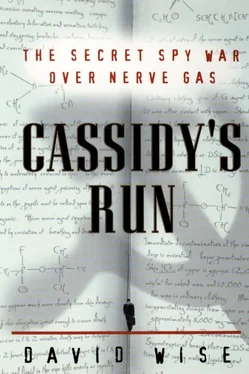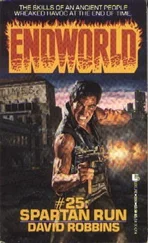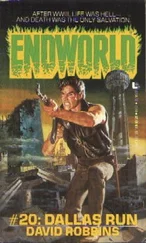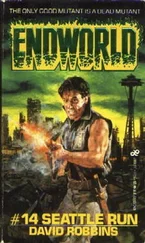James E. Nolan, Jr., a former high-ranking FBI counterintelligence official, said Martin’s view was that clearing material to pass it to the Soviets “constituted a de facto declassification. He felt that made it unusable for prosecution.”
Legally, however, the question of whether the feed had technically been declassified or not fell into an arcane, gray area. Nobody really knew. An equally strong argument could be made that a document stamped TOP SECRET was exactly that. [2] There was reason to believe that the material passed to the Soviets by Joe Cassidy was not legally declassified. “If we did declassify a document passed to the Soviets,” said one former counterintelligence official, “we would have to declassify every copy and every other document like it. If the Soviets ever managed to obtain a second copy stamped ‘declassified,’ they’d know we were playing games.”
“The documents were approved for passage to a hostile government,” Parker pointed out, regardless of whether the feed was classified. “You have the conspiracy charge—it had classified markings on it so you would have to assume the person who picked it up would know he was not authorized to have it.”
The real reason for the Justice Department’s caution, however, was the backstage debate over the wiretaps and entries. The issue was further complicated by the fact that some of the techniques used by the FBI in the PALMETTO investigation had been approved by the attorney general, but some had not.
Despite the legal hurdles, at first Parker was encouraged by the apparent support he received from Martin and Tafe. “At the outset, Tafe said, ‘I think we can do a prosecution on this case,’” Parker asserted. “John Martin said face-to-face to me in his office in the Ninth Street building, ‘Yes, I think we have a case.’” [3] Even two decades later, with the cold war over, the two Justice Department attorneys were not eager to talk about the PALMETTO case. Martin refused to comment. Tafe, still a lawyer in the internal-security section, declined to speak on the record.
As the months slipped by, however, it soon became apparent to Parker that nothing was happening. “What we wanted was prosecution. All we got was talk.” Days and weeks went by with little action. “I’m an easy-going guy,” Parker said, “but I was kicking over trash cans.”
The FBI man had run into a bureaucratic brick wall. “I had been fighting with Joe Tafe for eighteen months to give me an answer,” Parker said. “I even spoke to the U.S. attorney in Minnesota, Thor Anderson.” Whenever Parker approached Tafe, he said, the Justice Department attorney would say, “‘I’m busy.’ I could never pin him down.
“We’d been talking for months…. I go into his office, and I said, ‘We’re ready to go, are you going to make a decision on it?’ He said, ‘Damn, I just haven’t been able to get to it.’ That’s when I kicked over the trash can rather than hit him in the head. Tafe said, ‘Calm down!’ and I yelled a little bit.”
Parker decided on the spot it was time to confront the Lopezes. As the case supervisor, he had the authority to do that much, with or without the Justice Department’s approval. Once he did so, he knew, the case would be over, one way or another. Either he would get a confession and win permission from the department to make an arrest, or he would at least have the satisfaction of knowing he had done all he could. Parker had a few parting words for Tafe. “I said, the hell with it, I’m going out to Minneapolis to do an interview. Probably we should have done it before.”
It was late May 1978. The Justice Department officials led Parker to believe that if Lopez confessed, there could be a prosecution after all. “Talking to Tafe and Martin, it was, like, ‘If we get an admission, you’ll authorize an arrest?’ And they said, ‘Yes.’”
Tafe had concluded there might be a way to pick his way through the legal minefield. With a confession, the government would have a clean case—it would not have to rely on electronic evidence. There was a great deal of other evidence, such as the photographs of the Lopezes clearing drops in Florida, that was not obtained through wiretaps or similar means. And Cassidy was willing to testify in open court.
Parker’s decision to fly to Minnesota meant that the criminal complaint would have to be at the ready. On May 24, a teletype went out from FBI headquarters to Tampa and Minneapolis advising those offices that Tafe would fly to Tampa with the complaint, which was to be filed in court if the subjects attempted to flee. Tampa was instructed to warn Joe Cassidy that his name might be about to be made public and to make arrangements to protect him.
The next day, the text of the complaint was teletyped to the FBI office in Tampa for its information. Headquarters advised that if the Justice Department filed the complaint, it would do so in the United States District Court in Tampa before Magistrate Paul Game, Jr., since the alleged criminal acts had been committed in that part of Florida. The complaint was entitled United States of America v. Gilberto M. Lopez and Alicia C. Lopez, and charged them with violation of Section 794(c) of Title 18 of the U.S. criminal code, the key espionage statute that prohibits the transmittal of defense information to a foreign power. The law provides the same punishment for conspiracy to violate the statute. [4] Under the 1972 Supreme Court ruling outlawing capital punishment, there was no death penalty for espionage from that year until 1994, when Congress, in the wake of the Aldrich Ames spy case, restored the penalty if certain criteria were met. (The Supreme Court restored capital punishment in the states in 1976.) Had the Lopezes been convicted of espionage in 1978, they could have been sentenced to a prison term of any number of years or life, but they would not have faced the death penalty.
The criminal complaint named Mikhail I. Danilin and Oleg I. Likhachev as “co-conspirators but not defendants.” Since the two Soviets had diplomatic immunity, they could not be arrested. The complaint charged that the four “did conspire to communicate, deliver and transmit to a foreign government, to wit, the Union of Soviet Socialist Republics… information relating to the national defense of the United States, with intent and reason to believe that the said information would be used to the advantage of said foreign government.” [5] The espionage statutes generally bar disclosure not of “classified information” but of “information relating to the national defense.” Since 1951, documents have been classified by presidential executive orders, not by law. In practice, since the 1960s, the Justice Department has generally taken the position that data must be classified at the level of secret or above to fall within the definition of “national defense” information. But the statute does not require that the documents be classified. Under the language of the espionage laws, therefore, even if the material left in the rocks had technically been “declassified,” that would not necessarily bar the prosecution of a person who retrieved it and passed it to a foreign power.
The complaint then said that Joseph Cassidy “was acting as a double agent for the FBI…. The FBI has been aware of and has supervised Mr. Cassidy’s activities as an apparent agent of the USSR during the course of the events stated herein.” The complaint listed the details of all of Cassidy’s meetings with Danilin and Likhachev, as well as the clearing of the drop sites in Florida by Lopez, sometimes accompanied by his wife. It ended by asking the magistrate to issue “a warrant for the arrest of defendants Gilberto M. Lopez and Alicia C. Lopez.”
Читать дальше












